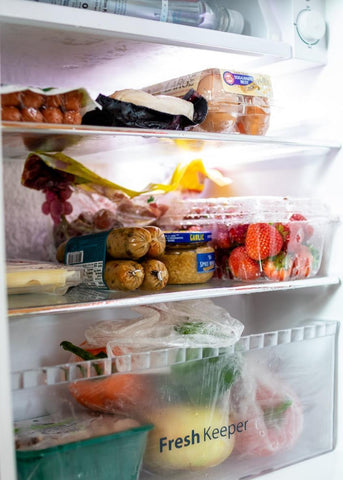We have all known this situation: the suitcases are packed, all you have to do is closing the door and the holidays can begin! But wait: haven't we forgotten anything? The standby lights flicker, the oven clock shows the time, and the refrigerator hums nicely. A doubt then arises: should you let your devices turn on or off?

Superfluous Power Consumption
It's not just when you go on a vacation that you wonder about the power consumption in our absence. A spouse who can only be seen on weekends, an apartment occupied only when working away from home, student accommodation, or a country house. Our accommodation is regularly empty.
One of our customers recently asked us if it was worth turning off the refrigerator when she was away 3 days a week. Let's face it, and there is no universal answer; it depends on your consumption as well as your willingness to save energy and money.
The fact remains that all your devices consume, even when they are on standby. It is estimated that this hidden consumption represents in France the equivalent of the energy produced by two nuclear power plants and, at the European level, the total annual consumption of a country like Denmark!

What Should You Consider?
First of all, you should know that the older your device, the more energy it consumes, especially when compared to a device of the latest generation. Most people don't know how much their old refrigerator actually consumes. To determine this, you can buy an ammeter and monitor its consumption.
Here are some examples of what a device consumes approximately today:
- 150-liter refrigerator, classified A ++: approximately 95 kWh per year.
- 150-liter refrigerator, classified A ++, with freezing compartment: 140 kWh per year.
- Combined fridge-freezer classified A ++: depending on its volume, between 185 and 230 kWh.
- 344 L Liebherr BLU Performance combined, classified A +++ -20%: 149 kWh per year.
Then ask yourself how much it costs you to operate your refrigerator each year. The calculation is simple: multiply the electric consumption in kWh of your device by the price of electricity (in 2017, this price varies between 0.11 and 0.17 € per kWh depending on the power of your meter, your supplier of energy and whether or not you benefit from a peak / off-peak rate (check this information on your latest electricity bill). Then divide this result by 365 to get the daily consumption of your device.
It is then up to you to decide if the amount obtained constitutes a saving worthy to you. The achievable savings will be all the more advantageous if your device is old and/or if you are absent from your home regularly.
Remember that other parameters also come into play, such as the energy consumed by the compressor to reach operating temperature again when you restart your appliance or having to empty your refrigerator entirely before your departure. In the latter case, you will then have to add the value of the food that you will have to buy again or even throw away.
But don't waste it !!! That alone could be enough to convince you to leave your fridge plugged in while you're away.
To answer our customers, we can say that it is worth it to turn off your refrigerator from the energy efficiency point of view while you are away. What can be said is that from one day of use, you can turn off a refrigerator without a freezer compartment. For a handset, it's worth it after a week of absence. Finally, if you decide to turn off your refrigerator, be sure to leave the door open to avoid the development of fungi and unpleasant odors. Also, double-check for other malfunctions since it is always easier to master the situation before leaving.
The best idea to buy an energy-saving freezer, ice maker, and refrigerator, consider to buy Euhomy appliances today.

